The Golden Years: Selecting the Best Supplements for Aging Adults
Here's an overview:
- Introduction to Senior Health and Nutritional Needs
- The Importance of Tailoring Supplements to Aging Bodies
- Vitamin D: The Sunshine Vitamin for Bone and Immune Health
- Omega-3 Fatty Acids: Supporting Heart and Brain Function
- Calcium: Building and Maintaining Strong Bones
- Vitamin B12: Essential for Blood Formation and Brain Functions
- Probiotics: Maintaining Digestive Health and Immunity
- Magnesium: The Overlooked Mineral for Overall Wellness
- Antioxidants: Combating Oxidative Stress and Age-Related Damage
- Adapting Supplement Strategies as You Age
- Conclusion: Integrating Supplements with Diet for Holistic Senior Health
Introduction to Senior Health and Nutritional Needs

As individuals progress into their senior years, referred to as the Golden Years, maintaining optimal health becomes paramount. During this phase, health concerns often shift with a prime focus on preserving brain health and bolstering immune support to ensure longevity and quality of life. For aging adults, the complex interchange between nutrition and health cannot be overstated, as dietary needs evolve with changes in metabolism, nutrient absorption, and the body's ability to combat illness.
To address these changes, many seek the 10 most effective supplements to enhance brain function. Such supplements are increasingly popular as they promise targeted support for memory focus, thereby providing 10 ways to combat brain fog. Vitamins and minerals play a significant role, as they lay the foundation to boost cognitive functions, enhancing overall brain health.
The search for optimal nutrition often leads to a definitive guide to supplements that cater to the specific needs of aging individuals. With a plethora of options available, it's essential to discern nootropic supplements that have benefits from those that don't. This discernment is crucial as not all supplements provide the same level of efficacy or safety.
Understanding the role of vitamins in promoting healthy cognitive function is a cornerstone of senior nutrition. It is vital to scrutinize various supplements for their ability to improve focus, memory, and concentration. A prudent selection of the appropriate dietary supplements can act as adjutants alongside a balanced diet to uphold a senior's health and well-being in their advanced years.
The Importance of Tailoring Supplements to Aging Bodies

As the body ages, physiological shifts necessitate adaptations in nutritional intake, making it crucial to tailor supplements to the needs of aging adults. Maintaining brain health is paramount in the golden years, with the objective to support cognitive functions through appropriate vitamins and minerals. The 10 most effective supplements to enhance your brain include Omega-3 fatty acids, B vitamins, and antioxidants such as Vitamin E, which have been linked to a lower risk of cognitive decline.
Aging bodies often require extra immune support to combat the slow-down of the immune system, making vitamins such as C and D, along with zinc, essential supplements to bolster the body’s defenses. Furthermore, when it comes to combatting brain fog, customized supplements can play a strategic role. Incorporating the right nootropic supplements into one's regimen can be one of the 10 ways to combat brain fog. These may include ingredients like ginkgo biloba and phosphatidylserine that are known to improve memory focus.
Understanding how vitamins and minerals boost cognitive functions is also important for older adults. For instance, Vitamin B12 is vital in preserving nerve health and enhancing concentration. Engaging with the definitive guide to supplements can help discern between the nootropic supplements that have benefits and those that don’t, thereby optimizing cognitive vitality.
In conclusion, the role of vitamins in promoting healthy cognitive function cannot be understated. Supplements for better focus, memory, and concentration should be carefully selected to meet the specific requirements of aging bodies. As they select their supplements, aging adults should prioritize products designed to address their unique nutritional needs, ensuring they continue to thrive during their golden years.
Vitamin D: The Sunshine Vitamin for Bone and Immune Health

Often termed the "sunshine vitamin," Vitamin D stands out for its critical role in promoting bone health and bolstering the immune system. For aging adults, maintaining optimal Vitamin D levels becomes even more vital given its contribution to calcium absorption and bone density preservation. This is particularly crucial in the prevention of conditions such as osteoporosis, which are prevalent in the older population.
The immune support provided by Vitamin D should not be understated, especially as the immune system naturally weakens with age. Vitamin D regulates and activates the immune system, ensuring a robust defense against pathogens. A deficiency in this vital nutrient has been linked to an increased susceptibility to infections and a higher incidence of autoimmune diseases.
Additionally, Vitamin D may have a place among the 10 most effective supplements to enhance your brain. Studies have suggested a link between Vitamin D levels and brain health, with insufficient levels potentially correlating to a decline in cognitive functions. This positions Vitamin D as a possible mitigating factor against brain fog, contributing to improved memory, focus, and overall cognitive wellness.
A proper intake of Vitamin D, whether through diet, supplementation, or controlled sun exposure, is essential for:
- Calcium Absorption and Bone Health: Ensuring that the body can maintain bone mass and structure.
- Immune System Modulation: Enhancing the body's natural defenses.
- Brain Health: Contributing to the maintenance of cognitive function.
While there are ongoing debates regarding nootropic supplements that have benefits and those that don’t, the role of vitamins like Vitamin D in promoting healthy cognitive function is increasingly acknowledged. For aging adults, this vitamin is a non-negotiable component of their health regimen - illuminating the path to maintaining both physical and mental well-being.
Omega-3 Fatty Acids: Supporting Heart and Brain Function
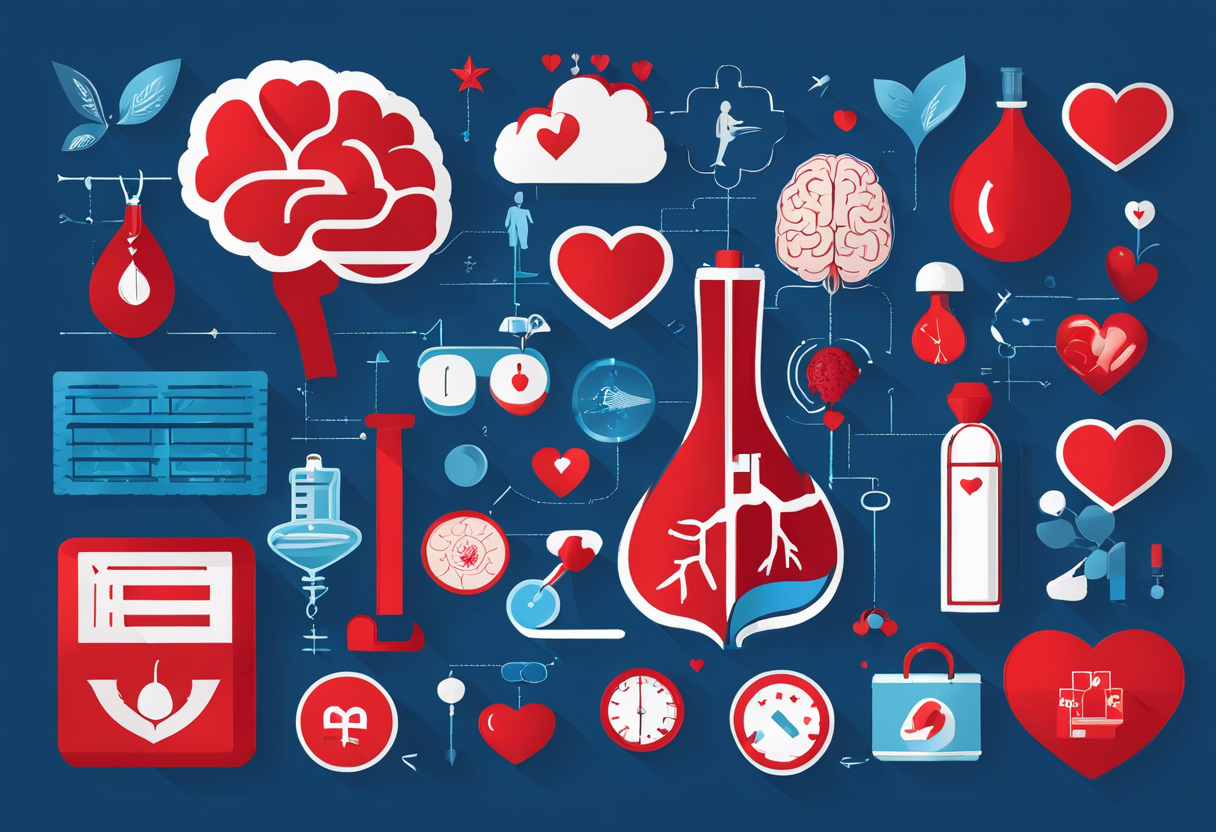
Omega-3 fatty acids are paramount in supporting both heart and brain function as aging adults strive for optimal health. These polyunsaturated fats are essential components of cell membranes throughout the body and have powerful anti-inflammatory properties. There are three main types of omega-3s: EPA (eicosapentaenoic acid), DHA (docosahexaenoic acid), and ALA (alpha-linolenic acid). EPA and DHA, primarily found in fish, are the most potent and linked to various health benefits.
For heart health, omega-3s have been shown to:
- Lower blood pressure
- Reduce triglyceride levels
- Slow the development of plaque in the arteries
- Decrease the risk of arrhythmias, which can lead to sudden cardiac death
- Reduce the likelihood of heart attack and stroke
When considering brain health, these fatty acids are just as vital. DHA, in particular, constitutes a large portion of the brain's gray matter and is instrumental for maintaining the structure and function of brain cells. Regular intake of omega-3s can enhance cognitive functions and is considered one of the 10 most effective supplements to enhance your brain. The consumption of omega-3 supplements may contribute to:
- Improved memory focus
- The reduction of brain fog
- Enhanced cognitive functions
For aging adults specifically, omega-3s have been associated with a lower risk of age-related cognitive decline and the support of a healthy immune system. While not all nootropic supplements come with substantiated benefits, omega-3s are backed by research supporting their role in promoting healthy cognitive function.
In conclusion, integrating omega-3 supplements or a diet rich in EPA and DHA into daily regimes is a practical approach to secure both cardiovascular and brain health. It lays a strong foundation for combating age-associated changes and preserving mental acuity, aligning with strategies to ensure the golden years are lived in robust health.
Calcium: Building and Maintaining Strong Bones

Aging adults often face a decline in bone density, leading to conditions such as osteoporosis. Calcium plays a pivotal role in ensuring that bones remain healthy and strong throughout the golden years. This essential mineral is not only integral for maintaining bone mass, but also for the proper functioning of the heart and muscles.
For aging adults, adequate calcium intake coupled with vitamin D, which aids in calcium absorption, is crucial. The recommended daily allowance for calcium tends to increase for individuals over the age of 50 because the body's ability to absorb calcium decreases with age. To meet these needs, calcium can be obtained through diet, with foods such as dairy products, leafy greens, and fortified cereals, or through supplements if dietary sources alone are insufficient.
When considering supplementation, aging individuals should look for high-quality calcium supplements that are easily absorbed by the body. Types of calcium such as calcium citrate or calcium carbonate are commonly recommended. It's important to pair calcium supplements with vitamin D for maximum efficacy.
However, excessive intake of calcium can lead to health issues, such as kidney stones. Therefore, it’s beneficial for aging adults to consult with a healthcare provider to determine the appropriate calcium dosage, ensuring it complements other aspects of their health regimen, including:
- Supplements targeting brain health
- Nutrients for immune support
It’s also worth noting that regular exercise, particularly weight-bearing exercises, can aid in strengthening bones. Combining a healthy lifestyle with the right balance of nutrients and supplements may not only enhance physical well-being but can also contribute to cognitive functions, potentially helping with issues like brain fog and memory focus.
Vitamin B12: Essential for Blood Formation and Brain Functions
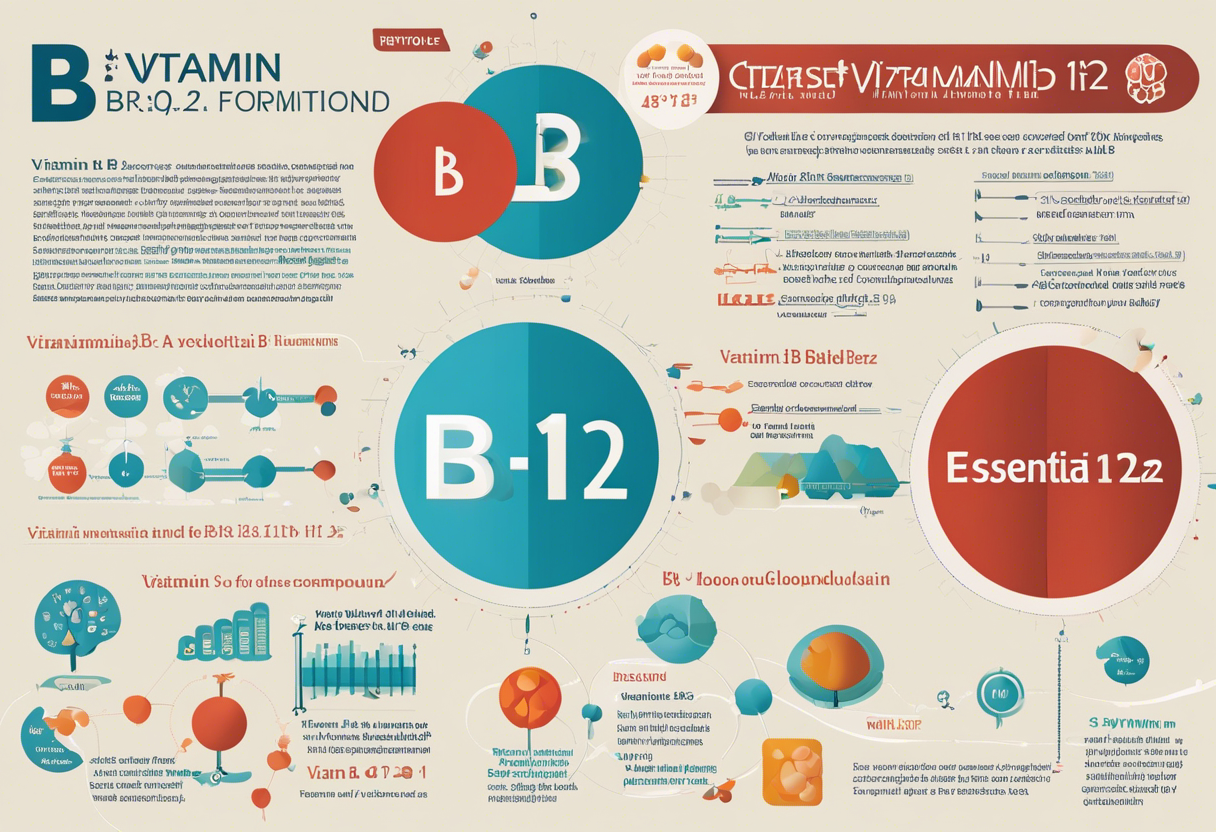
Vitamin B12, a crucial nutrient in the maintenance of brain health, is often emphasized in discussions about the 10 most effective supplements to enhance your brain. This vitamin plays an indispensable role in blood formation, as well as in the upkeep of proper brain and nervous system functions. For aging adults focused on honing their cognitive faculties, understanding the role of B12 in combating brain fog for improved memory focus is vital.
As one explores 10 ways to combat brain fog, the inclusion of Vitamin B12 stands out, due to its fundamental participation in the synthesis of red blood cells and the prevention of anemia—a condition which can lead to cognitive impairments. Its contribution to the production of neurotransmitters highlights how vitamins and minerals boost cognitive functions, signifying its importance in the definitive guide to supplements for better focus, memory, and concentration.
In providing immune support, Vitamin B12 also plays a significant role. The aging population, seeking the protective benefits of nootropic supplements, should be aware of which have benefits and those that don't. A shortage of B12 can lead not only to fatigue, but also to long-term neurological issues. Hence, ensuring optimal levels of this vitamin is an active measure in the upkeep of brain health.
Regarding the role of vitamins in promoting healthy cognitive function, Vitamin B12 is a pivotal player. It assists in the maintenance of myelin, the protective sheath encasing nerve fibers, which is crucial for swift signal transmission within the brain. In its absence, adults may experience memory problems, mood disturbances, and cognitive decline.
Aging individuals should consult with a healthcare provider to assess their Vitamin B12 levels, and explore supplementation if necessary, to preserve and enhance their neurological well-being and overall quality of life.
Probiotics: Maintaining Digestive Health and Immunity

In the quest to champion aging with vitality, addressing gut health is foundational. Probiotics, often known as "good bacteria," are pivotal in maintaining digestive health and bolstering the immune system in aging adults. The intricate relationship between the gastrointestinal tract and the immune system is an area where probiotics have a significant impact. They play a crucial role in the maintenance of the intestinal barrier, production of protective substances, and modulation of the immune system.
For those seeking to enhance brain health, the gut-brain axis cannot be overstated. This bidirectional communication pathway suggests a healthy gut flora is vital for brain function, potentially influencing 10 ways to combat brain fog for improved memory focus. As the cognitive demands of aging become apparent, probiotics may complement the 10 most effective supplements to enhance your brain by promoting gut health, which in turn could affect cognitive function positively.
Here are specific ways in which probiotics contribute to wellness in aging adults:
-
Supporting Nutrient Absorption: Adequate absorption of vitamins and minerals is necessary for brain health, and probiotics assist in this by maintaining a balanced gut flora.
-
Enhancing Immune Function: A substantial portion of the immune system is located in the gut; probiotics can help in immune support by boosting the body's natural defenses.
-
Reducing Inflammation: Chronic inflammation can be harmful to cognitive functions. Probiotics help reduce systemic inflammation, possibly lowering the risk of cognitive decline.
As part of a comprehensive approach, it is recommended to incorporate probiotics either through dietary sources like yogurt and fermented foods or high-quality supplements. Selecting the right probiotic is crucial as it complements the definitive guide to supplements for better focus, memory, and concentration, ensuring that aging individuals can access the nutritional support they need for a thriving gut ecosystem. This, in turn, may set the stage for improved resilience against age-related cognitive changes and strengthen the body's immune responses.
Magnesium: The Overlooked Mineral for Overall Wellness
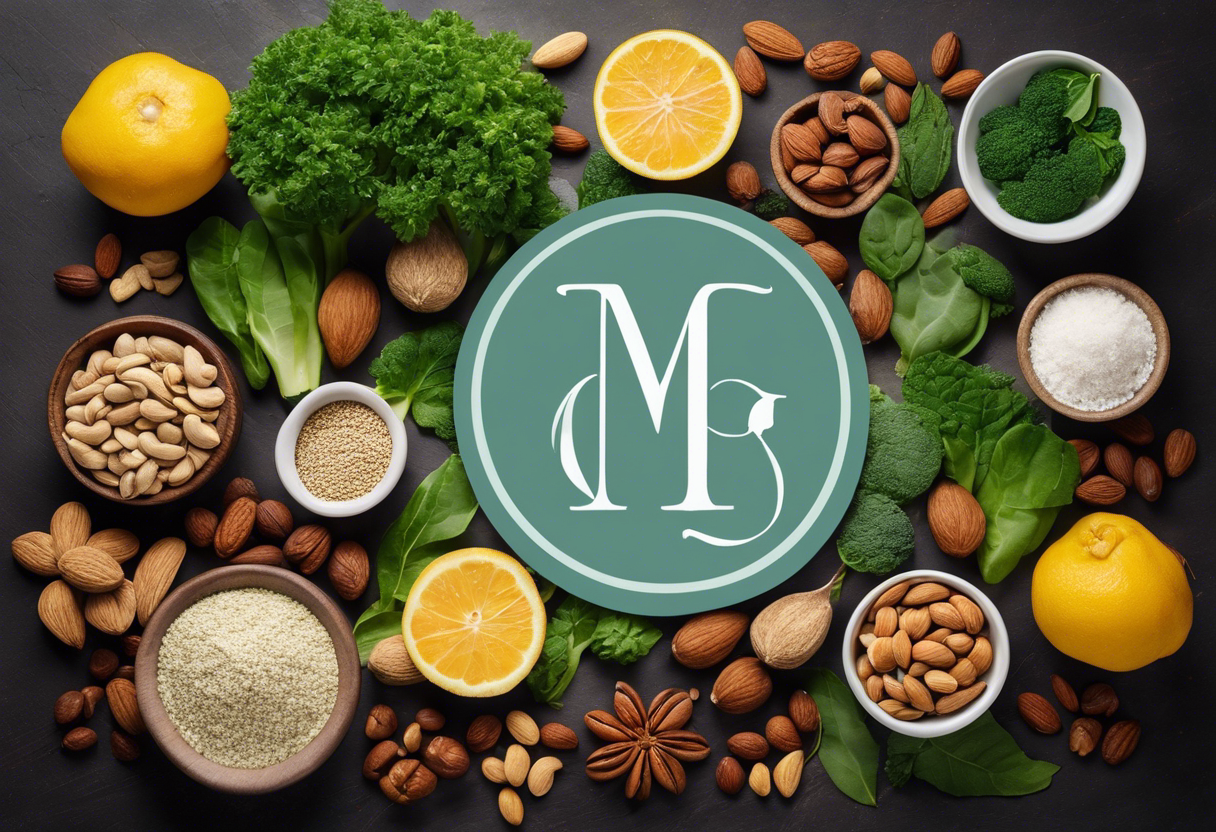
As aging adults seek to maintain their health and vitality, many overlook magnesium, a mineral that plays a pivotal role in several bodily functions and is essential for overall wellness. Magnesium contributes significantly to bone health, a critical concern for older adults. However, its benefits extend far beyond strengthening bones.
-
Brain Health: Magnesium is also instrumental in brain health. It serves as a gatekeeper for the NMDA receptors, which are involved in brain development, memory, and learning. Adequate magnesium levels have been linked to a reduced risk of developing age-related cognitive decline.
-
Immune Support: The importance of magnesium for immune support cannot be overstated. It aids in the proper function of various cells within the immune system, helps to maintain the integrity of the immune response, and reduces inflammation, a common issue in the elderly that can lead to chronic health conditions.
-
Combat Brain Fog: For the aging population struggling with brain fog, magnesium can be considered among the 10 most effective supplements to enhance brain function. It plays a part in regulating neurotransmitters, which send messages throughout the brain and body, thereby improving memory, focus, and concentration.
-
Cognitive Function: Magnesium's influence on cognitive functions is profound. It can help combat the decline in neurological health that often accompanies aging, making it a key component of a brain-healthy supplement regimen.
Despite its critical role in maintaining health and preventing age-related decline, magnesium doesn't always make it onto the list of daily supplements for older individuals. However, incorporating this mineral can be an effective strategy in the pursuit of better focus, memory, and concentration—goals that are at the heart of the quest for long-lasting cognitive wellness. Aging individuals should consult with their healthcare providers to assess their magnesium levels and consider adding this vital nutrient to their daily routine for improved quality of life.
Antioxidants: Combating Oxidative Stress and Age-Related Damage
As individuals age, the significance of maintaining brain health and bolstering immune support becomes paramount. Among the numerous strategies to preserve cognitive function, addressing oxidative stress through antioxidants is critical. Oxidative stress results from an imbalance between free radicals and the body's ability to counteract their harmful effects. This imbalance can lead to cellular damage and is implicated in age-related cognitive decline.
Antioxidants are compounds that can neutralize free radicals, thereby protecting cells from damage. They play a vital role in enhancing brain health and supporting immune function among aging adults. Incorporating antioxidants into one’s diet or through supplements can be one of the 10 most effective ways to enhance your brain, not only combatting brain fog but also promoting improved memory and focus.
For those seeking to boost cognitive functions, understanding how vitamins and minerals act as antioxidants is critical. For instance, Vitamin E, Vitamin C, and beta-carotene are well-known for their antioxidant properties. Moreover, minerals like selenium and zinc contribute to antioxidant enzyme activity within the body.
Nootropic supplements, often referred to in discussions about the definitive guide to supplements for better focus, memory, and concentration, may contain a blend of antioxidants. However, it’s important to distinguish which nootropic supplements have benefits and those that don't, as not all are equally effective or backed by scientific research.
The key antioxidants for aging adults include:
- Vitamin E: supports brain health and cognitive function.
- Vitamin C: vital for immune support and neutralizing free radicals.
- Selenium: plays a role in the antioxidant defense system.
- Zinc: crucial for immune function and antioxidant enzyme activity.
- Beta-carotene: a precursor to Vitamin A, instrumental in protecting neurons from oxidative stress.
In summary, antioxidants are essential in the fight against oxidative stress and age-related damage. They are the cornerstone of any regimen aimed at enhancing and maintaining cognitive health, offering a natural defense against the deterioration of the brain and immune system with age. For comprehensive cognitive support, incorporating a range of antioxidants into an aging adult’s supplement routine would be conducive to promoting overall well-being.
Adapting Supplement Strategies as You Age
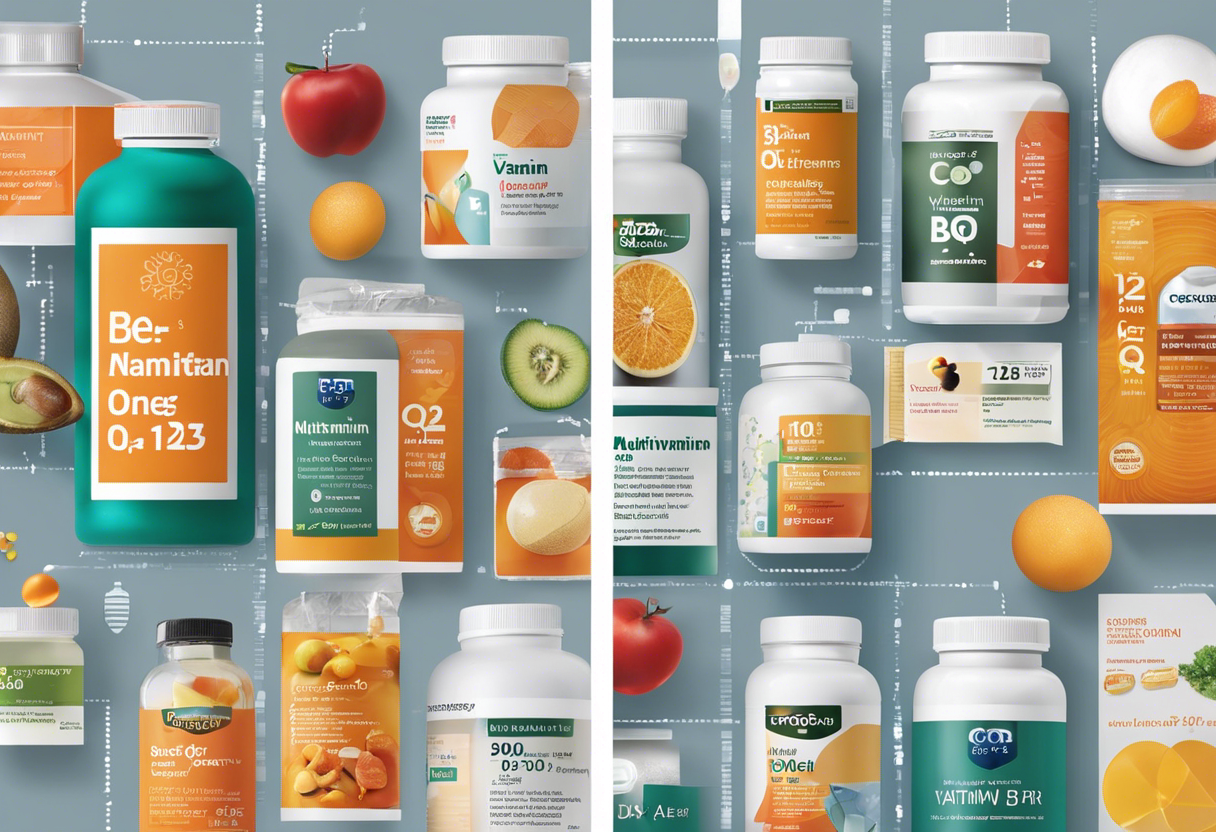
As adults advance into their golden years, the need for particular supplements shifts to support changing health requirements. Aging individuals may find that nootropic supplements, famed for their potential to enhance brain health, play a more vital role than ever before. Implementing the 10 most effective supplements to enhance your brain can be a crucial strategy in maintaining cognitive functions.
Bone density, muscle mass, and immune support gradually decline with age. Therefore, calcium, vitamin D, and omega-3 fatty acids become more significant. Calcium and vitamin D are essential for bone health, while omega-3s are linked with reduced inflammation and support for brain health.
Furthermore, there's a growing emphasis on the role of vitamins in promoting healthy cognitive function. Vitamin B12, often deficient in older adults, is critical for maintaining brain health and nerve function. Antioxidants, such as vitamin E, have been linked to a lower risk of Alzheimer's disease and cognitive decline.
For mature adults looking for 10 ways to combat brain fog for improved memory focus, supplements like ginkgo biloba and phosphatidylserine may offer benefits. These can be part of a regimen to improve memory, focus, and concentration, alongside a balanced diet and regular exercise.
However, it's crucial to discern which nootropic supplements have benefits and those that don't. Consulting with healthcare professionals is recommended to tailor supplement intake to individual needs, avoiding ineffective or potentially harmful supplements. This personalized approach is the best way to ensure vitamins and minerals are effectively utilized to boost cognitive functions as one ages.
Conclusion: Integrating Supplements with Diet for Holistic Senior Health

As aging adults navigate their golden years, the quest to maintain peak physical and mental health becomes paramount. Addressing the multifaceted approach towards optimal aging, it is vital to understand how dietary choices and supplementation need to work in synergy. Holistic senior health transcends beyond just managing age-related deterioration; it encompasses enhancing brain health, reinforcing immune support, and fortifying cognitive functions.
Incorporating the right supplements—derived from the 10 most effective ingredients to improve brain health—plays a significant role in combating brain fog and bolstering memory and focus. However, selection should be tailored to individual needs to maximize the efficacious integration with diet. The definitive guide to supplements unwraps which nootropic supplements provide tangible benefits and which do not, delineating a clear path for informed choices.
Nevertheless, the benefits of supplements do not negate the importance of a balanced diet. Both are complementary pieces of a larger health puzzle. A diet rich in vitamins and minerals naturally boosts cognitive functions, while supplements can fill nutritional gaps. The role of vitamins in promoting healthy cognitive function is undisputed, but supplements alone can't stand in for wholesome eating habits.
Seniors should consult healthcare providers to devise a personalized plan, navigating the complex landscape of nutrition and supplementation. It is the combination of a nutrient-packed diet and targeted supplementation that can lead to a robust defense against the challenges of aging, ultimately contributing to a higher quality of life and a more vibrant approach to senior years.
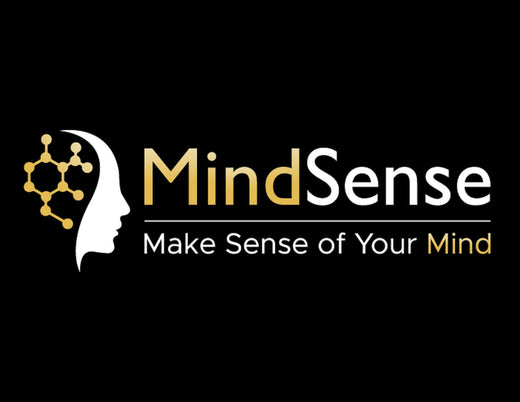
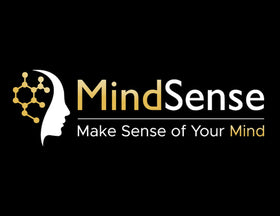


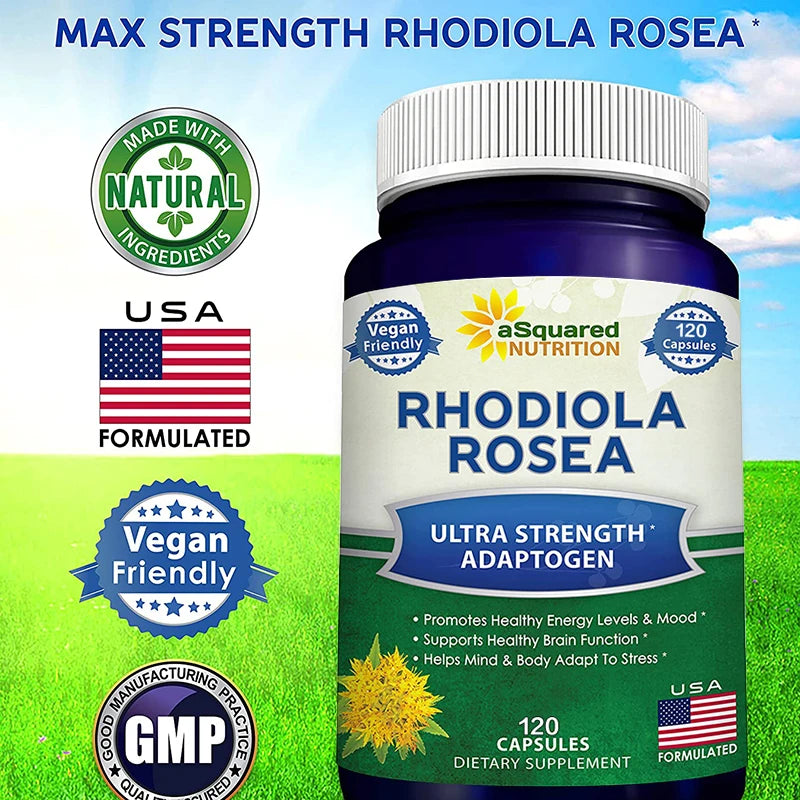
Leave a comment